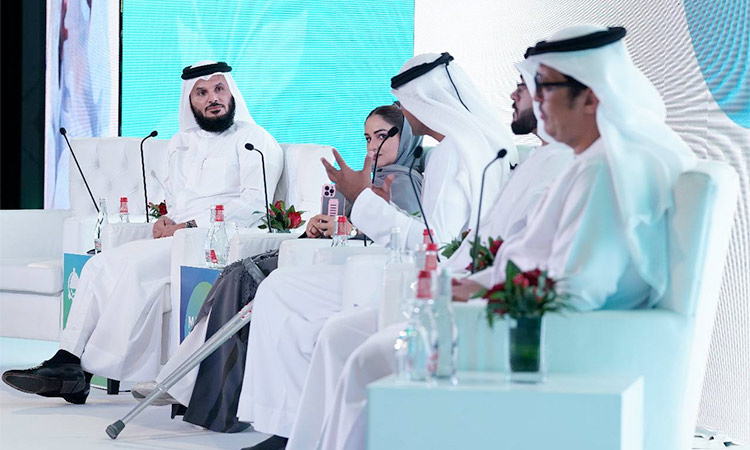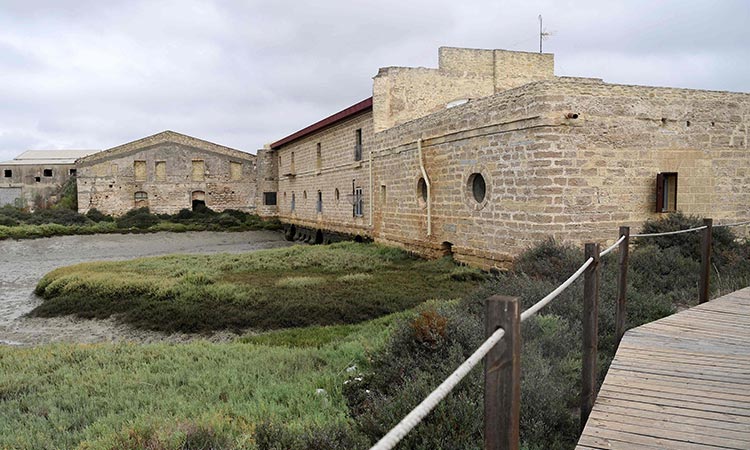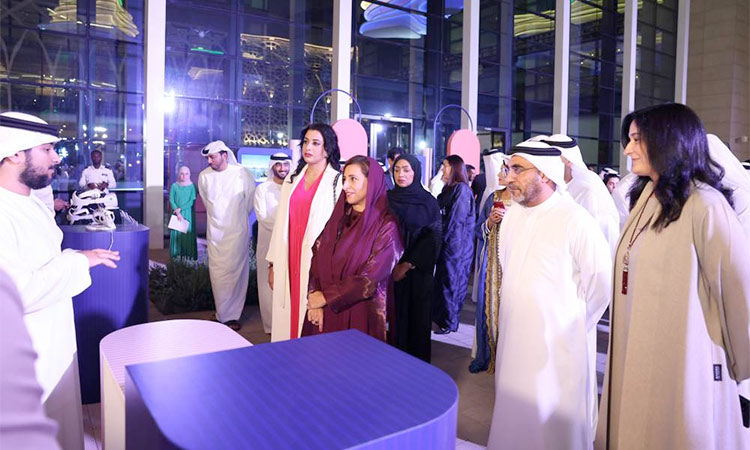Sustainable agricultural and food systems at top of agenda at COP28

A scenic view of the Sustainability Pavilion in Dubai.
This came during Almheiri’s participation in the panel discussion entitled “COP28: “The Importance of Promoting Sustainable Food Systems”, organised by Trends Research and Advisory at the Grand Hall of Sharjah International Book Fair.
The panel was presented by Alyazia Al Hosani, Director of the Media Communication Office at TRENDS Research and Advisory. The discussion was moderated by Sumaya Al Hadhrami, Deputy Director of TRENDS Global Sector.
Almheiri indicated that traditional food systems cause about 33% of total global greenhouse gas emissions and climate changes resulting in enormous agricultural and food challenges, mainly water scarcity and lack of arable land. She said that food loss and waste is a global issue requiring behavioural changes at the consumer level.
For that purpose, the UAE launched the National Food Security Strategy 2051, an ambitious vision to transform the UAE into a leading global hub in the field of innovation-based food security.
She added that the UAE is turning to emerging technologies and innovative cultivation methods, such as controlled-environment agriculture (CEA) and developing drought-tolerant crops.
The minster indicated that technology and innovation are important to help make tangible progress in transforming food systems, along with encouraging farmers to diversify crops, to enhance the resilience of agricultural systems in the face of climate fluctuations.
Regarding the desired global outcomes of the Conference of COP28, which will lead to strengthening sustainable food systems, Almheiri said that the food systems issue will be at the top of the COP28 agenda.
That is why we launched “the COP28 Food Systems and Agriculture Agenda” last July, an ambitious plan to transform global food systems and ensure their sustainability.
The current food system besides causing a significant proportion of global emissions, contributes to biodiversity loss, deforestation and drought, freshwater pollution, and the collapse of aquatic wildlife.
The minister stressed that the UAE’s policy on food systems was strengthened ahead of COP28 with the inclusion of sustainable agriculture in the UAE’s Net Zero 2050 Strategic Initiative launched in 2021.
Since then, national capacities have been established in vertical farming, hydroponic farms, and other areas.
Regarding the expected results during COP28 to promote sustainable food systems, Almheiri pointed out that the UAE as a climate-vulnerable nation with an arid landscape and limited freshwater resources, has a strong awareness of this aspect.
The country is working on reducing imports and increasing reliance on locally produced food. She indicated that the UAE has the largest research and development facility in the world dedicated to vertical agriculture, and thanks to innovation in crop science, we have been able to harvest rice grown in the desert as well.
Almheiri said that the UAE government recently launched the “Net Zero 2050 Strategy,” which includes implementing more than 25 integrated programs in 6 targeted economic sectors, namely energy, industry, transportation, construction, waste, and agriculture, to bring about a transformation in these vital sectors and promote the green economy. This is intended to achieve significant economic gains, including the creation of more than 200,000 jobs and a 3% growth in gross domestic product.
Almheiri stated that the Net Zero 2050 strategy intends to achieve net-zero emissions, by adopting a new approach in climate action, positioning the UAE as a renewable energy pioneer for nearly two decades, and working with various organizations, and government and private sector players globally in the climate neutrality field.
This involves efforts in the modern agriculture sector, such as the “Agricultural Innovation Mission for Climate” (AIM4C), which is a joint initiative between the United States and the UAE, currently has more than 500 partners around the world, including governments and non-governmental organisations committed to invest about $13 billion in climate-smart agriculture and modern food systems worldwide.
Considering the main climate challenges facing the UAE, especially those which the Minister of Climate Change and Environment expects in transforming food systems, she revealed that the challenges lie in changing existing systems and finding innovative solutions.







